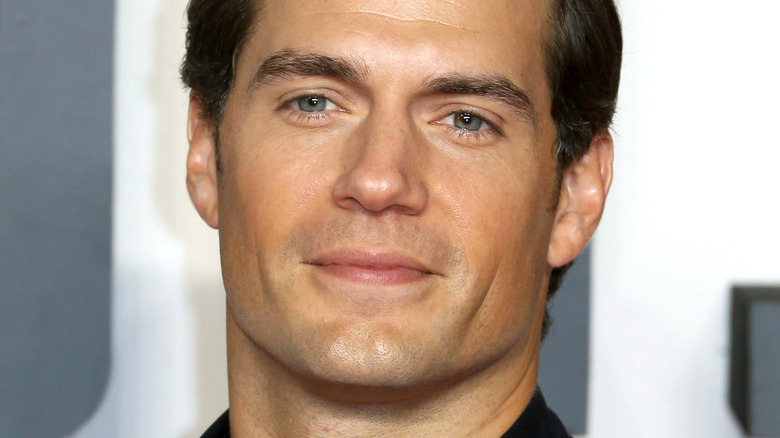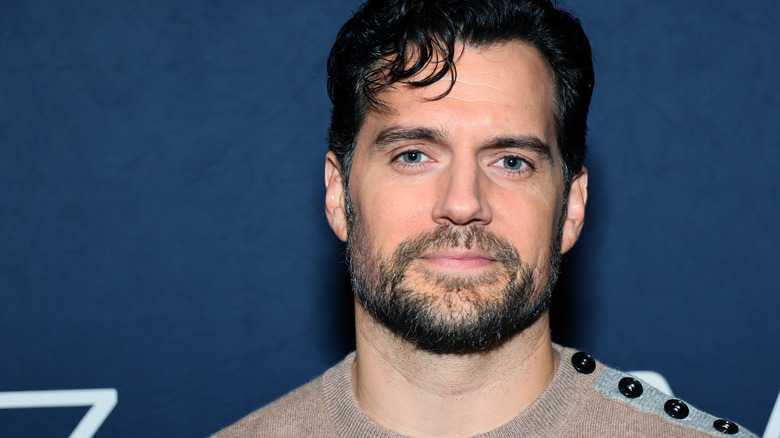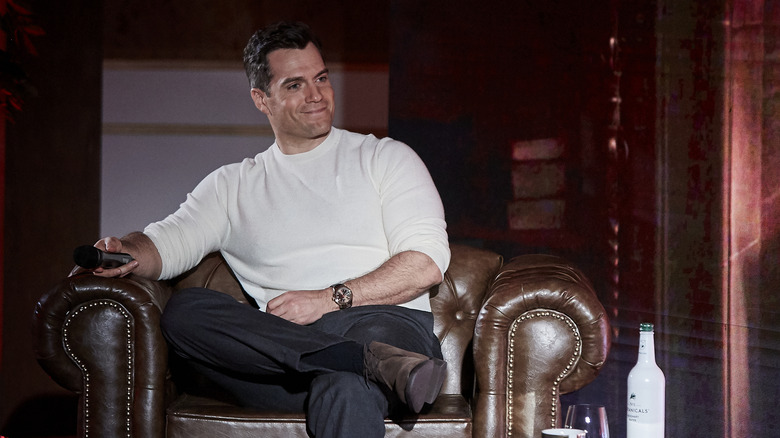Henry Cavill Pulled A Slick Move And Snuck Some Original Dialogue Into The Witcher
Fans of the Netflix adaptation of "The Witcher" are hard-pressed for good news these days. With the recent announcement that Henry Cavill, who starred as Geralt of Rivia, is to part ways with the series after the end of the third season and that Liam Hemsworth is set to take his place as the titular white-haired Witcher, it's all too likely that the Netflix production will hemorrhage viewership. The casting director, Sophie Holland, has doubled down on the changing of the guard, "Change can be really scary. We like what we know. It's comforting. I LOVE HC [Henry Cavill] But, I think [and I hope you're open to the journey] there might be space for things to be even better. I believe there's a very real opportunity for that to be the case here. LH [Liam Hemsworth] is 🔥," but whether her kindness will assuage the rampant doubt remains to be seen.
As if that weren't enough, what's worse is that (as shared by IGN) a previous producer of "The Witcher" has come forward saying that the writing staff actively approached the script with malice towards Andrzej Sapkowski's books and CD Projekt Red's games. Since that seems to align with Cavill's possible reason for saying goodbye, it looks like a perfect storm for an early series cancelation. All that to say, again, fans are hard-pressed for reasons to think of "The Witcher" with fondness. So, let's take a look back at one of the many reasons that Cavill was such an ideal casting decision.
Henry Cavill added lines from the book without permission
Here's a bit of fun trivia shared by ComicBook.com. It's no secret that Henry Cavill is a passionate fan of all things "Witcher," so it should be no surprise that he went out of his way, and out of the studio's way, to feature dialogue pulled directly from Andrzej Sapkowski's work. In a Polish interview conducted by Marcin Zweirzchowski — another joyfully nerdy man who shares his thoughts on pop culture sites — Cavill admitted to adding to the script. Specifically, he said, "There is a fragment right at the beginning of [the short story 'Something More' from 'Sword of Destiny'] where Geralt ... experiences a vision ... then, beautiful words are uttered about crossing the meadow and the fog. There was no such scene in the series, and these words captivated me with their poetry, they were so wonderfully 'Sapkowski' that I wanted them to be spoken ... I did not feel like having long discussion about whether I could add this bit somewhere. So I just did it, said the words in front of the camera, and was ready to face the consequences ..."
That article is nearly a year old, and the interview it covers is even a bit older, so it sounds like Cavill had been growing mutinous against the writer's room for a long while. It feels like he has enough leverage with his star power to needle in a few references but not enough to wrangle the creative team into hiring better writers. Everyone's got a limit.
The Andrzej Sapkowski's poetry in question
For the curious, we know exactly what bit of Andrzej Sapkowski's writing that Henry Cavill is referencing in that interview. It's from the short story "Something More" in "Sword of Destiny." In the seventh chapter, just as Cavill describes, Geralt finds himself experiencing a vision on Sodden Hill where he meets Death herself. Upon discovering her identity, Geralt mentions that she seems to be following him, and then asks how his life will come to an end. To this, Death responds by saying, "I'll take you by the hand. I'll take you by the hand and lead you through the meadow. Into the cold, wet fog."
The scene continues, and Geralt does his best to appear unafraid in the face of the absolute unknown, but even the Butcher of Blaviken experiences nerves when confronted with death. It's framed as a bad dream that lingers in Geralt's mind, and the fact that it seemed to linger in Cavill's, too, only goes to show that he was always the man for the job.


